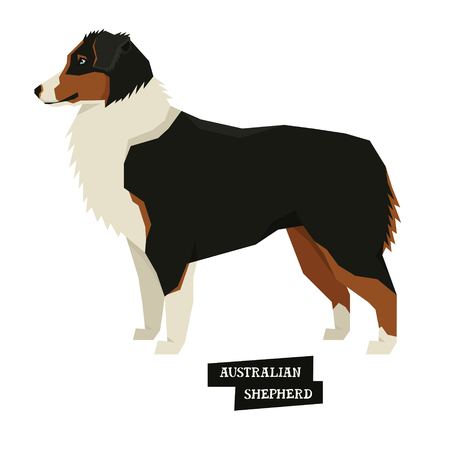1. Introduction to Exotic Pet Health
Exotic pets, such as reptiles, birds, and small mammals, have unique health needs that differ significantly from those of traditional pets like cats and dogs. Because of their specialized care requirements, exotic pets are more prone to specific health issues if their environment, diet, and overall care are not properly managed.
Why Proper Care is Essential
Unlike common household pets, exotic animals often hide signs of illness due to their natural instincts. This makes it crucial for pet owners to be proactive in monitoring their health. Many exotic pets require precise temperature, humidity, and dietary conditions to thrive. Even minor deviations from their ideal environment can lead to serious health problems.
Common Challenges in Exotic Pet Health
Exotic pets face a variety of health challenges that stem from improper husbandry, inadequate nutrition, and stress. Below is an overview of some common health concerns:
| Health Issue | Common Causes | Affected Pets |
|---|---|---|
| Respiratory Infections | Poor ventilation, incorrect humidity levels | Reptiles, birds |
| Nutritional Deficiencies | Lack of essential vitamins and minerals | Reptiles, small mammals |
| Dental Problems | Poor diet, lack of proper chewing materials | Rabbits, guinea pigs |
| Parasitic Infections | Poor hygiene, exposure to contaminated environments | Lizards, snakes, birds |
| Skeletal Disorders | Lack of calcium and UVB light exposure | Turtles, lizards |
The Importance of Regular Vet Check-Ups
A major challenge with exotic pets is that many veterinarians specialize in traditional pets and may not be well-versed in treating exotic species. Finding an experienced exotic pet vet is essential for early disease detection and proper treatment.
The Role of Proper Husbandry in Preventing Illnesses
A well-maintained habitat plays a significant role in keeping exotic pets healthy. Ensuring the correct temperature, humidity, lighting, and diet helps prevent many common illnesses. Pet owners should regularly clean enclosures and monitor environmental conditions closely.
Signs That Your Exotic Pet Might Be Sick
If you notice any of the following symptoms in your exotic pet, it may be a sign of illness:
- Lethargy or sudden inactivity
- Lack of appetite or weight loss
- Difficult or labored breathing
- Swellings or unusual lumps on the body
- Sneezing or discharge from the nose or eyes
- Irritated skin or fur loss
- Dull feathers or abnormal molting in birds
- Trouble walking or uncoordinated movements
The Need for Educated Exotic Pet Owners
Caring for an exotic pet requires research and dedication. Understanding their specific needs will help prevent common health problems and ensure they live long and healthy lives. By providing appropriate care and seeking veterinary help when needed, owners can greatly improve their pets quality of life.
2. Common Health Issues in Reptiles
Reptiles are unique pets that require specific care to maintain their health. However, they are prone to certain illnesses, including metabolic bone disease (MBD) and respiratory infections. Recognizing the signs early can help prevent severe complications.
Metabolic Bone Disease (MBD)
MBD is one of the most common health issues in pet reptiles. It is caused by a lack of calcium, vitamin D3, or improper UVB lighting, leading to weak bones and deformities.
Signs and Symptoms:
- Soft or deformed bones
- Lethargy and weakness
- Tremors or twitching
- Difficulty walking or climbing
- Swollen limbs or jaw
Treatment Options:
- Providing proper UVB lighting for calcium absorption
- Supplementing with calcium and vitamin D3
- Feeding a balanced diet rich in calcium
- Consulting a reptile veterinarian for severe cases
Respiratory Infections
Poor husbandry conditions, such as low temperatures and high humidity, can lead to respiratory infections in reptiles. These infections can become serious if left untreated.
Signs and Symptoms:
- Wheezing or open-mouth breathing
- Nasal discharge or bubbles from the nose
- Lethargy and loss of appetite
- Gurgling sounds when breathing
- Puffing up or stretching the neck frequently
Treatment Options:
- Increasing enclosure temperature slightly to support immune function
- Maintaining proper humidity levels based on species needs
- K eeping the enclosure clean and free from excess moisture
- Taking the reptile to a veterinarian for antibiotics if needed
Summary of Common Reptile Health Issues
| Disease | Main Causes | Main Symptoms | Treatment Options |
|---|---|---|---|
| Metabolic Bone Disease (MBD) | Lack of calcium, vitamin D3 deficiency, inadequate UVB lighting | Brittle bones, tremors, swollen limbs, difficulty moving | Proper UVB lighting, calcium/vitamin D3 supplements, diet adjustment |
| Respiratory Infections | Poor enclosure conditions (low temperature, high humidity), bacterial infection | Nasal discharge, wheezing, lethargy, labored breathing | Correcting temperature/humidity levels, veterinary care with antibiotics if necessary |
If you suspect your reptile has any of these health issues, its crucial to act quickly. Providing proper husbandry and seeking veterinary assistance when needed will help ensure your pet stays healthy.

3. Health Concerns in Small Mammals
Small mammals like rabbits, guinea pigs, and ferrets are popular exotic pets, but they require specialized care to stay healthy. These animals can be prone to specific health issues, such as dental problems and gastrointestinal distress. Recognizing the signs early can help prevent serious complications.
Common Health Issues in Small Mammals
Understanding the most frequent health concerns in small mammals is essential for providing them with proper care. Below are some of the most common problems these pets face:
Dental Issues
Many small mammals, particularly rabbits and guinea pigs, have continuously growing teeth. If their teeth become overgrown or misaligned, they can experience difficulty eating, pain, and even infections.
Signs of Dental Problems:
- Drooling or wet fur around the mouth
- Difficulty chewing or loss of appetite
- Weight loss
- Swelling around the jaw or face
Treatment & Prevention:
- Provide a high-fiber diet with hay to naturally wear down teeth
- Offer safe chew toys to help maintain dental health
- If symptoms appear, consult a vet for possible tooth trimming or treatment
Gastrointestinal (GI) Distress
The digestive systems of small mammals are delicate and highly sensitive to dietary changes or stress. GI issues can lead to severe conditions like gastrointestinal stasis (GI stasis), which is especially dangerous in rabbits.
Signs of GI Distress:
- Lack of appetite or refusal to eat
- Bloating or abdominal discomfort
- No fecal pellets or very small droppings
- Lethargy or unusual behavior
Treatment & Prevention:
| Treatment | Prevention |
|---|---|
| Syringe feeding with critical care food if necessary | Avoid sudden diet changes; introduce new foods gradually |
| Mild tummy massages for rabbits under veterinary guidance | Avoid stress and provide a quiet environment |
| If symptoms persist, seek immediate veterinary attention | A fiber-rich diet with fresh hay and leafy greens is essential |
Ectoparasites & Skin Conditions
Mites, fleas, and fungal infections can affect small mammals, causing skin irritation and discomfort. Regular grooming and environmental hygiene can reduce the risk of these conditions.
Signs of Skin Issues:
- Patches of hair loss or excessive scratching
- Dandruff-like flakes on fur or scaly skin
- Sores or crusty lesions on the skin
- Irritability due to itching or discomfort
Treatment & Prevention:
- Avoid using dog or cat flea treatments; always use vet-approved medications for small mammals
- If you notice excessive scratching or hair loss, consult a vet for diagnosis and treatment options like medicated shampoos or topical treatments
- Keenly observe any new bedding materials, as certain fabrics may cause allergic reactions in sensitive pets
- Cage cleaning and regular health checks can help prevent infestations before they become severe
Caring for small mammals involves being attentive to their unique health needs. By recognizing early warning signs and taking preventive measures, pet owners can ensure their furry companions stay happy and healthy.
4. Avian Health Problems and Prevention
Birds make fascinating and intelligent pets, but they are also prone to several health issues that owners should be aware of. Understanding common avian health problems can help bird owners recognize signs early and seek proper treatment. Below, we discuss some of the most frequent health concerns in pet birds and how to prevent them.
Feather Plucking
Feather plucking is a common issue where birds pull out their own feathers, often due to stress, boredom, or underlying health conditions.
Causes:
- Stress from environmental changes
- Lack of mental stimulation
- Poor diet
- Mite or bacterial infections
Signs:
- Bald patches on the body
- Damaged or broken feathers
- Constant preening or picking at feathers
Treatment & Prevention:
- Provide plenty of toys and interaction
- Maintain a consistent routine to reduce stress
- Ensure a balanced diet with proper nutrients
- If necessary, consult an avian veterinarian for medical evaluation
Respiratory Infections
Respiratory infections in birds can be serious and require prompt attention. They are often caused by bacteria, fungi, or poor air quality.
Causes:
- Bacterial or fungal infections
- Poor ventilation or exposure to smoke and strong fumes
- Damp or unclean living conditions
Signs:
- Sneezing or nasal discharge
- Coughing or wheezing sounds
- Lethargy and reduced activity levels
- Puffed-up feathers as if trying to stay warm
Treatment & Prevention:
- K eep the cage clean and well-ventilated
- Avoid exposing birds to smoke, aerosols, or chemical fumes
- If symptoms appear, visit an avian vet for antibiotics or antifungal medication as needed
Nutritional Deficiencies
A poor diet can lead to various deficiencies, affecting a bird’s overall health. Vitamin A deficiency and calcium deficiency are among the most common issues.
| Nutrient Deficiency | Common Signs | Treatment & Prevention |
|---|---|---|
| Vitamin A Deficiency | Pale beak and feet, respiratory issues, weakened immune system | Add fresh fruits and vegetables like carrots, sweet potatoes, and leafy greens to the diet. |
| Calcium Deficiency | Brittle bones, egg-laying difficulties in females, muscle tremors | Add cuttlebone or calcium supplements; provide a varied diet including leafy greens. |
| Iodine Deficiency (Common in Budgies) | Swellings around the throat, difficulty breathing, voice changes | Add iodine-rich foods like seaweed-based supplements as recommended by a vet. |
The Importance of Regular Veterinary Checkups
A regular checkup with an avian vet can help catch potential health issues early. Birds tend to hide illnesses until they become severe, so routine visits are crucial. Always monitor your birds behavior and appearance for any signs of illness.
Key Takeaways for Bird Owners:
- Create a stress-free environment with plenty of enrichment activities.
- Avoid exposing birds to harmful airborne substances.
- Ensure they receive a balanced diet rich in essential vitamins and minerals.
- If you notice unusual symptoms, seek veterinary care immediately.
Caring for birds requires attention to their physical and emotional well-being. By being proactive about their health needs, you can ensure your feathered companion lives a long and happy life.
5. When to Seek Veterinary Care
Knowing when to seek veterinary care for your exotic pet can be the difference between life and death. Exotic pets often hide signs of illness, making it crucial to recognize early symptoms and understand when an emergency requires immediate medical attention.
Signs That Require Immediate Veterinary Attention
If you notice any of the following symptoms in your exotic pet, contact a veterinarian specializing in exotic animals as soon as possible:
| Symptoms | Possible Causes |
|---|---|
| Difficulty breathing or open-mouth breathing | Respiratory infections, heart disease |
| Lethargy or unresponsiveness | Serious illness, organ failure, severe dehydration |
| Lack of appetite for more than 24 hours | Dental disease, gastrointestinal issues, stress |
| Sudden weight loss or extreme weight gain | Nutritional deficiencies, metabolic disorders |
| Tremors, seizures, or loss of coordination | Nervous system disorders, toxicity, infections |
| Bloating or swollen abdomen | Digestive blockages, internal infections |
| Aggressive changes in behavior or excessive hiding | Pain, stress, underlying illness |
| Persistent diarrhea or blood in stool/urine | Bacterial infections, parasites, kidney disease |
| Pale gums or unusual skin discoloration | Anemia, circulation problems, liver disease |
| Difficulties shedding (for reptiles) | Nutritional imbalances, improper humidity levels |
The Importance of Exotic Pet Veterinarians
A regular small-animal vet may not have the necessary experience to properly diagnose and treat exotic pets. These animals have unique anatomical and physiological differences that require specialized knowledge. Exotic pet veterinarians are trained to recognize species-specific conditions and provide appropriate treatments.
How to Find a Qualified Exotic Pet Veterinarian?
- Check for certifications: Look for vets who are members of organizations like the Association of Reptilian and Amphibian Veterinarians (ARAV) or the Association of Exotic Mammal Veterinarians (AEMV).
- Ask for recommendations: Reach out to local exotic pet communities or online forums.
- Visit the clinic beforehand: Ensure they have proper equipment and experience handling your specific type of pet.
- Create an emergency plan: Have contact information for an emergency exotic pet clinic readily available.
The Role of Preventative Care in Avoiding Emergencies
The best way to prevent emergencies is through regular check-ups and proper husbandry. Annual wellness exams help detect health issues before they become serious. Ensuring the correct diet, habitat conditions, and enrichment activities also plays a vital role in keeping your exotic pet healthy.
Key Preventative Measures:
- Nutritionally balanced diet: Provide species-appropriate food to prevent deficiencies.
- Cage/habitat maintenance: Keep their environment clean to reduce the risk of infections.
- Mental stimulation: Offer enrichment activities to prevent stress-related illnesses.
- Regular weight monitoring: Sudden changes can indicate underlying health issues.
- Semi-annual vet visits: More frequent check-ups may be needed for certain species.
If you ever feel uncertain about your pet’s health, its always better to be cautious and consult with a veterinarian. Early intervention can save lives and improve your pet’s quality of life.


